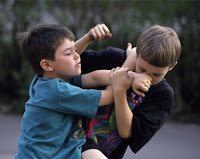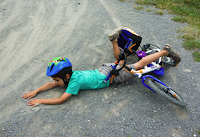Avoiding Social Interaction: The Dilemma for Teens on the Autism Spectrum

Teens with High-Functioning Autism (HFA) and Asperger’s (AS) have difficulty with the basic elements of social interaction, which may include a failure to develop friendships or to seek shared enjoyments with others, as well as a lack of social or emotional reciprocity. The reason this is such a problematic issue is because we, as humans, are social creatures by nature. Social interaction is a “requirement” within our species. The sad truth is that teens on the autism spectrum desire acceptance and want to “fit-in” with their peer group, but are often ostracized, mocked and bullied. In the adolescent world where EVERYONE feels insecure, the teenager who appears “different” or “odd” is voted off the island. Many of the traits associated with HFA and AS tend to exacerbate peer-rejection. For example, the “special needs” teen: faces similar academic problems as students with ADD due to his distractibility and difficulty organizing materials finds friendship and all i

